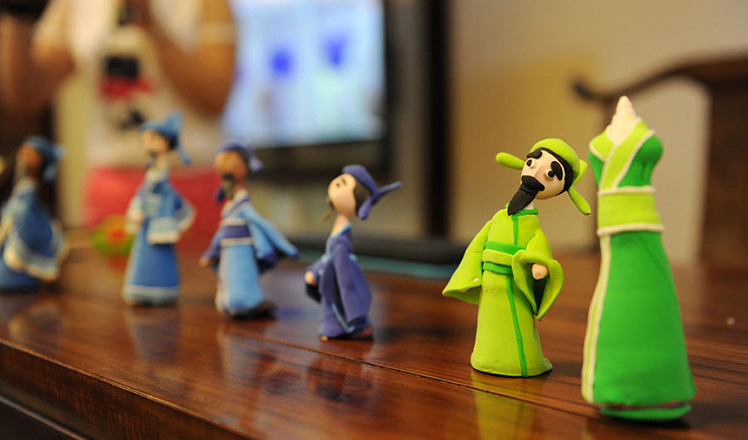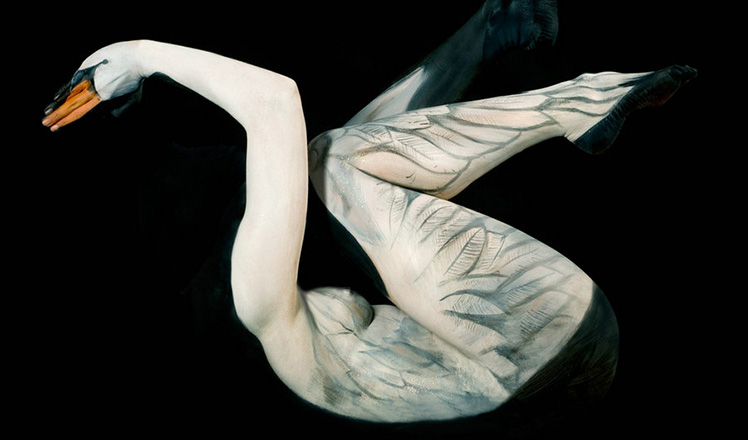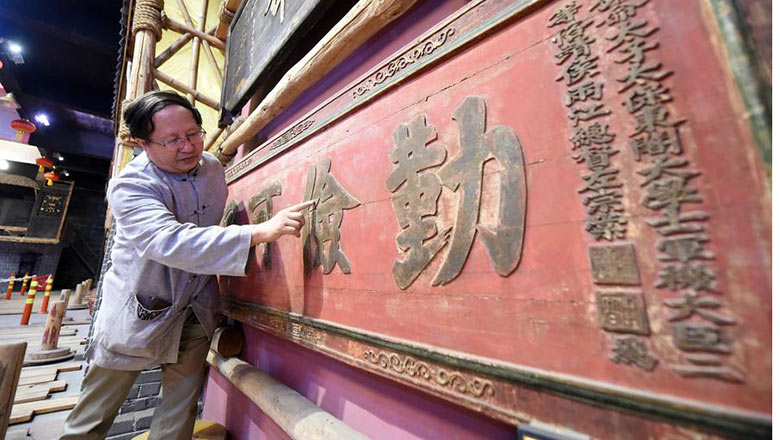Modern Chinese play The Crowd pleases in Peru
Updated: 2016-05-23 03:47
By MAO PENGFEI in Mexico(China Daily Latin America)
|
||||||||
A contemporary Chinese play about the corrosive effects of revenge is having a successful run in Peru's capital Lima.
The Crowd, written by celebrated young Chinese playwright Yu Rongjun, opened on May 12 at the city's Peruvian-Chinese Friendship Theater, marking many firsts.
It was the first time a contemporary Chinese play has been staged in Lima; the first time Yu's work has been presented in Spanish; and the first production ever staged at the new theater, which is part of the Confucius Institute at the Pontifical Catholic University of Peru.
The Crowd tells a story in China of a young boy who sees his mother accidentally shot and killed. He ends up dedicating the rest of his life to exacting revenge on the shooter.
According to Columbia University Press' introduction, the play was inspired by Gustave Le Bon's prophetic 1894 study of crowd psychology The Crowd: A Study of Popular Mind and Henri Ibsen's An Enemy of the People, and it investigates one man's struggle to seek justice at all costs — will revenge settle old scores or open new wounds?
The Spanish-language monthly magazine Oh! Asia covered the play's opening in Lima and described it as "a voyage through different cities and through the decades of major change in China, from 1967 to the present".
The story begins in the late 1960s in Southwest China's Chongqing city, when a stray bullet claims the life of 13-year-old Wang Guoqing's mother, condemning the young boy to a life consumed by hate and driven by an obsession to take the law into his own hands, especially after learning the killer got off with a light sentence.
"It's a very interesting play that really leads to reflection on human beings as individuals, but also on human beings as crowds, on what a human being is capable of when, en masse, how your identity can be distorted or your actions can be swept along by what the crowd does," said the play's director, Marissa Bejar.
How did she come to stage a modern Chinese work of literature in Peru?
It's a project that began at the Confucius Institute quite a long time ago, said Bejar, adding that the end result has been "a great event for Peru and the region".
"In 2014, I visited Shanghai, and the director of the Confucius Institute at the Pontifical Catholic University of Peru, Ruben Tang, asked me to look into contemporary Chinese playwriting, because he was also very keen to spread Chinese culture through the arts, and specifically through theater," recalled Bejar.
With support from the Confucius institutes, they were able to contact several contemporary Chinese writers.
"Actually, we chose the playwright more than the play," said Bejar, adding that Yu is one of the best authors in China and "so we contacted him".
Yu is one of the most prolific playwrights in China today, and the vice-president of the Shanghai Performing Arts Group. Since 2000, he has authored more than 50 works for stages in China and other countries.
"The playwright (Yu) was kind enough to give us his latest work, the last play he wrote last year. Although I didn't have a chance to see a staging of the play, he gave us the text for our consideration, and the work is very beautiful," said Bejar.
"It's quite different from other plays Yu wrote and with many interesting elements. This play, I believe, has a lot in common with (works by German playwright) Bertolt Brecht. That's why we wanted to stage this play," Bejar said.
The Confucius Institute translated the text from Chinese to Spanish. Work on the play started in November 2015 with a casting call for actors. By March, a rigorous rehearsal schedule began, with the troupe gathering four times a week and then five prior to the opening.
From the beginning, recalled Bejar, the six-member cast, all of whom play several characters, would get into discussions about the meaning of The Crowd.
"Theater is an art ... where the public enters into a conversation with the actor or the play. That's the traditional concept, but then there have emerged many other (playwrights) that have proposed something new and different on the nature of theater," Bejar said.
"It's very nice to understand China as a country that can put forward human situations similar to that of any other country on the planet. We find ourselves in situations that are unrelated to other countries. Though the play speaks volumes about China in particular, the situation it describes and relates can occur in any era or any country," Bejar added.
The play will run through May 27 at Lima's Peruvian-Chinese Friendship Theater.
- Russia to build first cruise liner in 60 years
- LinkedIn, Airbnb match refugees with jobs, disaster survivors with rooms
- Duterte 'willing to improve ties' with Beijing
- Canadian PM to introduce transgender rights bill
- Hillary Clinton says her husband not to serve in her cabinet
- New York cake show designs fool your eyes

 China Daily, celebrating 35 years
China Daily, celebrating 35 years
 Six things you may not know about Grain Buds
Six things you may not know about Grain Buds
 China Beijing International High-tech Expo
China Beijing International High-tech Expo
 Highlights at Google I/O developers conference
Highlights at Google I/O developers conference
 Nation celebrates International Museum Day
Nation celebrates International Museum Day
 Body brushwork creates vivid animals
Body brushwork creates vivid animals
 Can you still recognize these cities?
Can you still recognize these cities?
 A private museum owner's devotion to cultural protection
A private museum owner's devotion to cultural protection
Most Viewed
Editor's Picks

|

|

|

|

|

|
Today's Top News
Liang avoids jail in shooting death
China's finance minister addresses ratings downgrade
Duke alumni visit Chinese Embassy
Marriott unlikely to top Anbang offer for Starwood: Observers
Chinese biopharma debuts on Nasdaq
What ends Jeb Bush's White House hopes
Investigation for Nicolas's campaign
Will US-ASEAN meeting be good for region?
US Weekly

|

|








